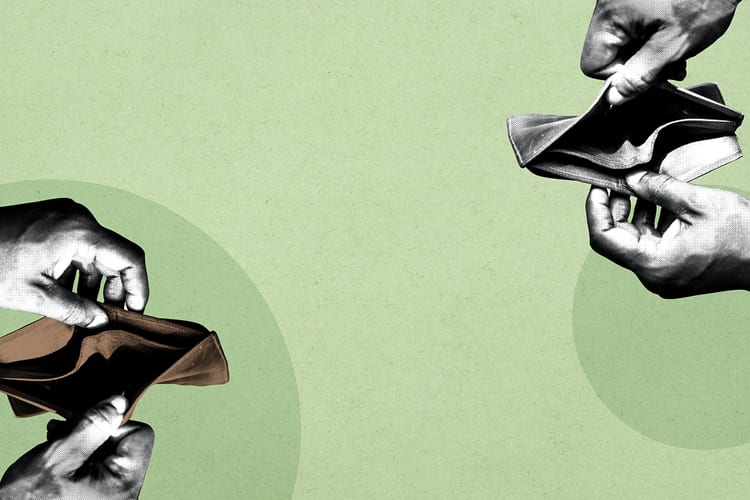How Debt Collectors Can Get Your Stimulus Check

Millions of Americans have already received their stimulus check promised by the CARES Act, and millions more should get theirs in the coming weeks. For many, it’s much-needed relief during a time of serious economic uncertainty. $1,200 isn’t a life-changing amount of money, but it can go a long way toward covering rent, food, or mortgage payments depending on some states.
Unfortunately, because of a loophole in the CARES Act, millions of Americans with outstanding debt may have their stimulus check seized by creditors before they can use it. The stimulus bill did not exempt CARES Act stimulus checks from private debt collection, and the U.S. Treasury Department confirmed that banks can seize stimulus money of consumers who have debts.
Who Could Lose Their Stimulus Check?
The CARES Act provided specific exclusions against the collection of state or federal debt. If you owe federal student loans, for instance, your money is safe. The bill says nothing about private debts, however. Those with outstanding private loans, credit card debt, or medical bills could have their money seized by collectors.
Reporter David Dyan tweeted that with the exception of JP Morgan, no big bank has said they won’t be seizing funds as of now.
I checked with the five largest consumer banks. Only JPMorgan Chase said they would not use CARES Act payments to offset debts. The other four gave no response. https://t.co/by1oQ1cNkL
— David Dayen (@ddayen) April 14, 2020
How Is This Happening?
Legally, this process is called “garnishment.” Under normal circumstances, this wouldn’t be surprising. For instance, if someone had unpaid fees with their bank and got a paycheck through direct deposit, that fee would be taken out of their check. However, these aren’t normal circumstances.
These stimulus checks were part of a massive federal effort to bring aid to Americans struggling to make ends meet during the COVID-19 crisis. The bill forbids these payments being seized for federal or state loans, indicating Congress wanted protections for taxpayers getting the money. However, because the checks are considered tax credits as opposed to federal benefits, they can be seized by private institutions, like banks and other creditors.
Ronda Kent, the Chief Disbursing Officer at the Treasury’s Bureau of Fiscal Services, gave creditors the green light to go after debtors in a conference call with bank officials. “There’s nothing in the law that precludes that action,” Kent said when asked about garnishment.
Will Anything Change?
The National Consumer Law Center outlined some strategies to help vulnerable families to protect their checks from debt collectors. For instance, consumers may be able to withdraw the funds through an ATM before they’re subject to garnishment.
However, the NCLC also notes that “For most consumers, there is no magic bullet to avoid a creditor or their own bank seizing the consumer’s bank account. Many approaches to minimize such seizures have drawbacks that are better to avoid if payments are not actually at risk of being seized.” Because many Americans may not even know if their bank account is subject to garnishment, the issue becomes even more complex.
A few state governors have issued executive orders saying banks should not seize stimulus money under any circumstance. These states include Illinois, Indiana, Massachusetts, Nebraska, New York, Oregon, Texas, Washington, and Virginia.
Earlier this month, 25 attorneys general sent a letter to Treasury Secretary Steven Mnuchin. They requested that CARES Act payments not be subject to garnishment. While no concrete changes have been made, there is momentum for a reversal of the initial bill’s wording.
Next Steps
There’s unfortunately not a ton you can do if you’re worried about your check. Reach out to state and federal legislators, and discuss your situation with an attorney if you can. As mentioned above, quickly withdrawing funds or redirecting them to a different bank account can potentially stop a garnishment or debt collectors from getting access. Otherwise, the best thing you can do is stay up to date on the changes around stimulus check seizures. In addition, read over the resources provided by the NCLC.










